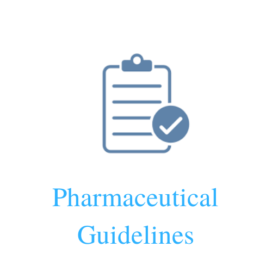The laboratory should have sufficient personnel with the necessary education, training, technical knowledge and experience for their assigned functions.
The technical management should ensure the competence of all personnel operating specific equipment, instruments or other devices, who are performing tests and/or calibrations, validations or verifications. Their duties also involve the evaluation of results as well as signing analytical test reports and certificates of analysis (see Part three, sections 18.7–18.11 and 19).
Staff undergoing training should be appropriately supervised and should be assessed on completion of the training. Personnel performing specific tasks should be appropriately qualified in terms of their education, training and experience, as required.
The laboratory personnel should be permanently employed or under contract. The laboratory should ensure that additional technical and key support personnel who are under contract are supervised and
sufficiently competent and that their work is in accordance with the quality management system.
The laboratory should maintain current job descriptions for all personnel involved in tests and/or calibrations, validations and verifications. The laboratory should also maintain records of all technical personnel, describing their qualifications, training and experience.
The laboratory should have the following managerial and technical personnel:
- a head of laboratory (supervisor), who should have qualifications appropriate to the position, with extensive experience in medicines analysis and laboratory management in a pharmaceutical quality control laboratory in the regulatory sector or in industry. The head of laboratory is responsible for the content of certificates of analysis and analytical testing reports. This person is also responsible for ensuring that:
- all key members of the laboratory personnel have the requisite competence for the required functions and their grades reflect their responsibilities,
- the adequacy of existing staffing, management and training procedures is reviewed periodically,
- the technical management is adequately supervised;
- the technical management who ensure that:
- procedures for performing calibration, verification and (re-) qualification of instruments, monitoring of environmental and storage conditions are in place and are conducted as required,
- regular in-service training programmes to update and extend the skills of both professionals and technicians are arranged,
- the safekeeping of any materials subject to poison regulation or to the controls applied to narcotic and psychotropic substances (see Part one, section 7.12) kept in the workplace is under the supervision of an authorized person,
- national pharmaceutical quality control laboratories regularly participate in suitable proficiency testing schemes and collaborative trials to assess analytical procedures or reference substances;
- analysts, who should normally be graduates in pharmacy, analytical chemistry, microbiology or other relevant subjects,
with the requisite knowledge, skills and ability to adequately perform the tasks assigned to them by management and to supervise technical staff;
- technical personnel, who should hold diplomas in their subjects awarded by technical or vocational schools; and (e) a quality manager (see Part one, section 1.3(j)).
